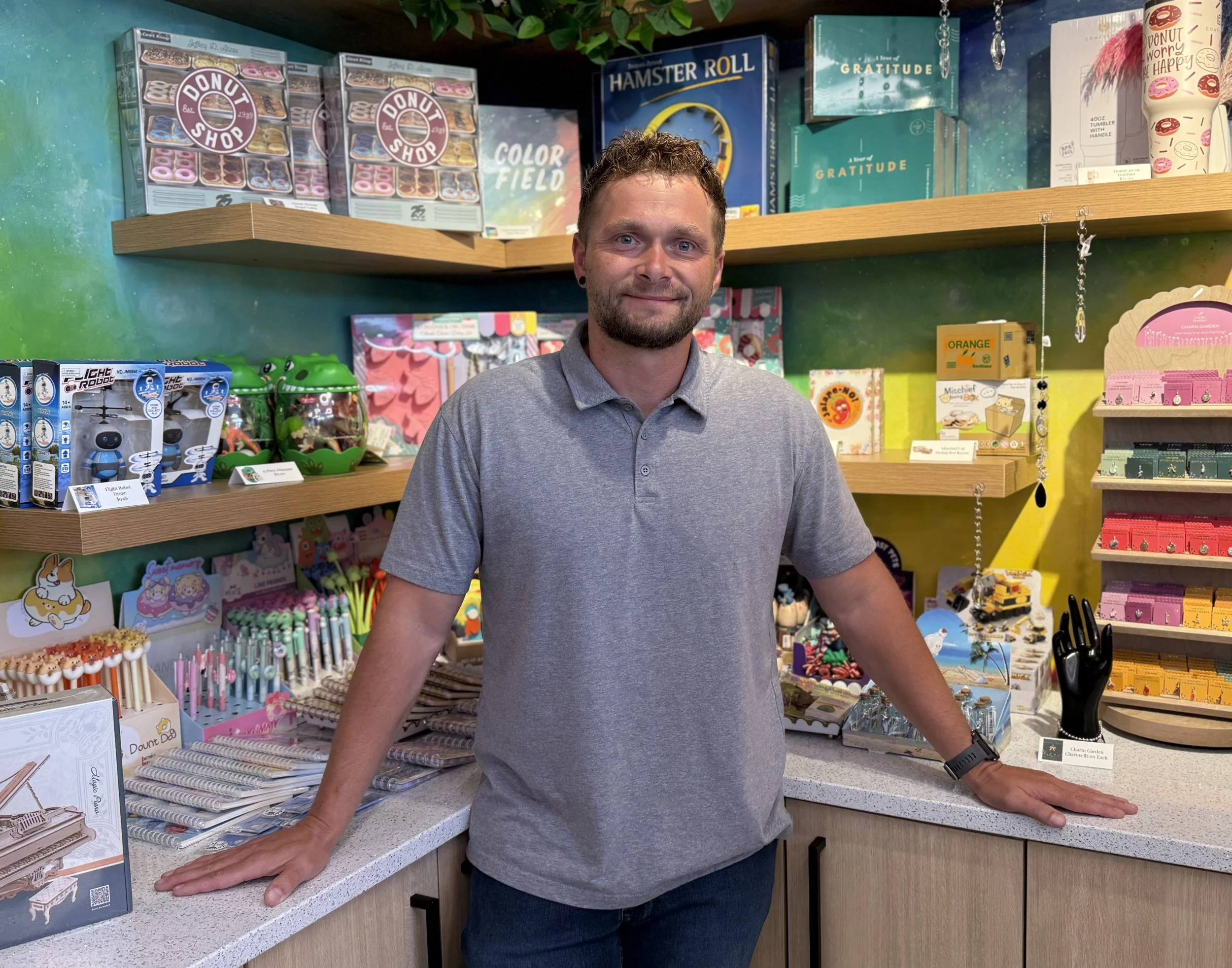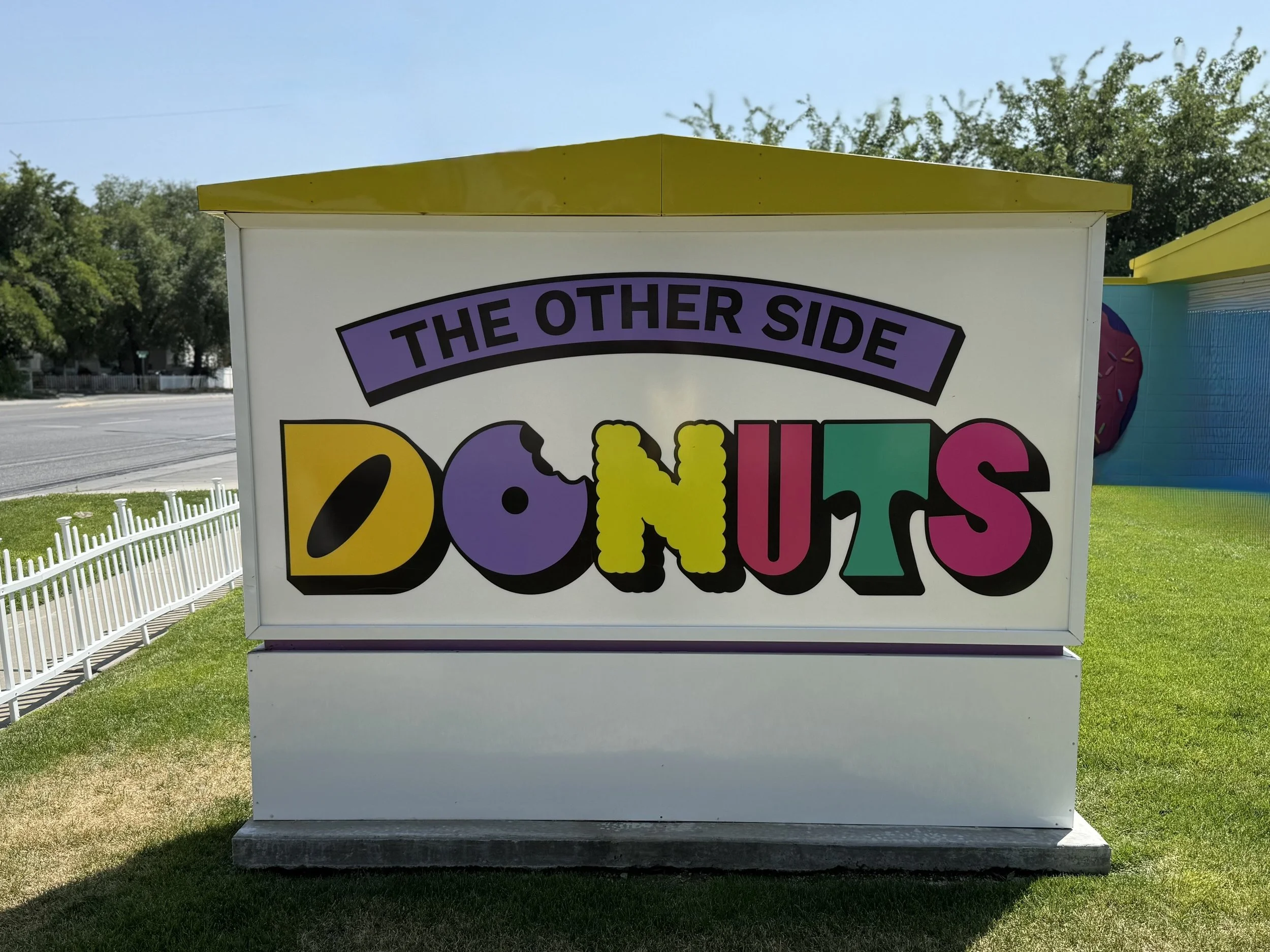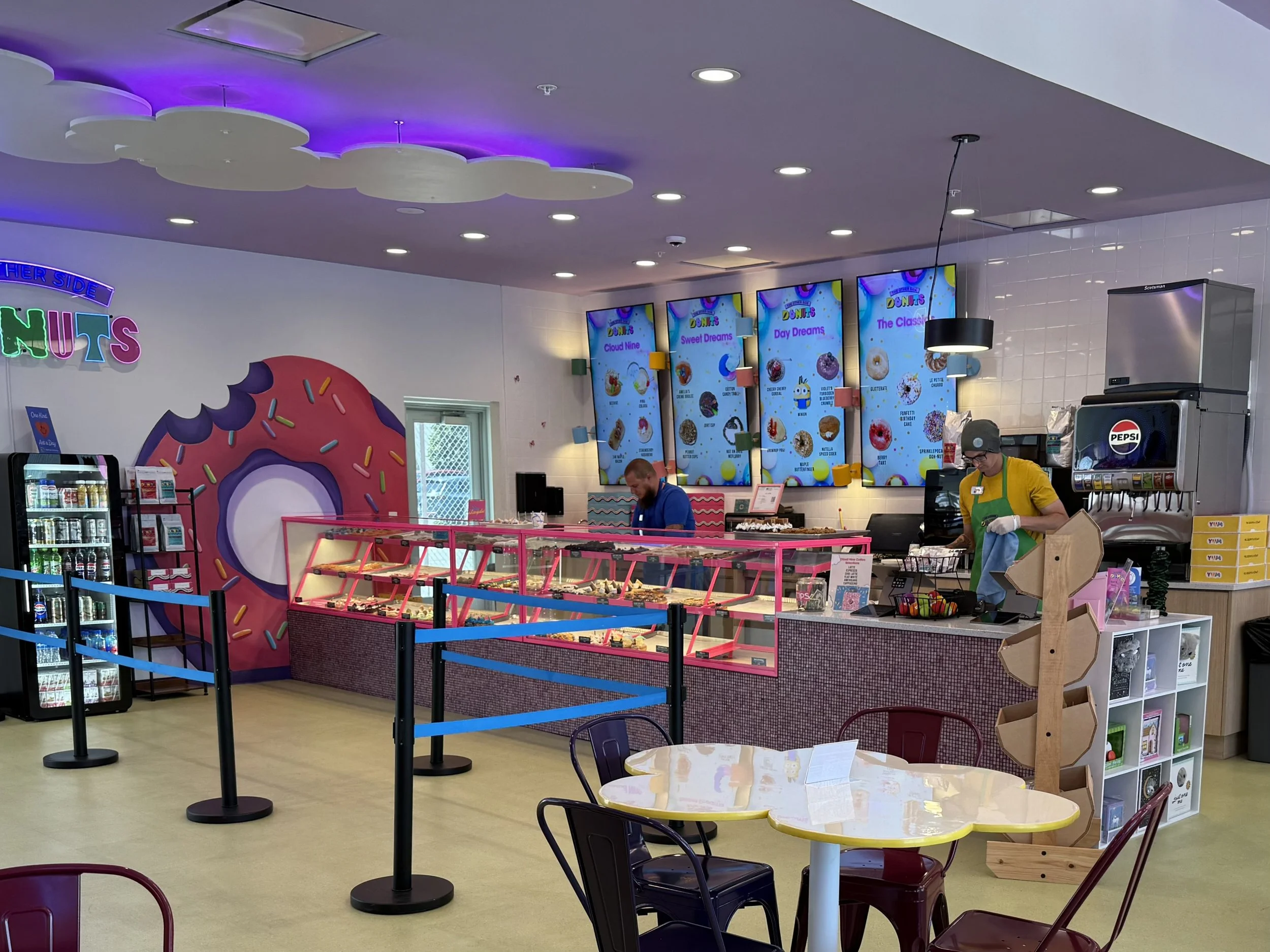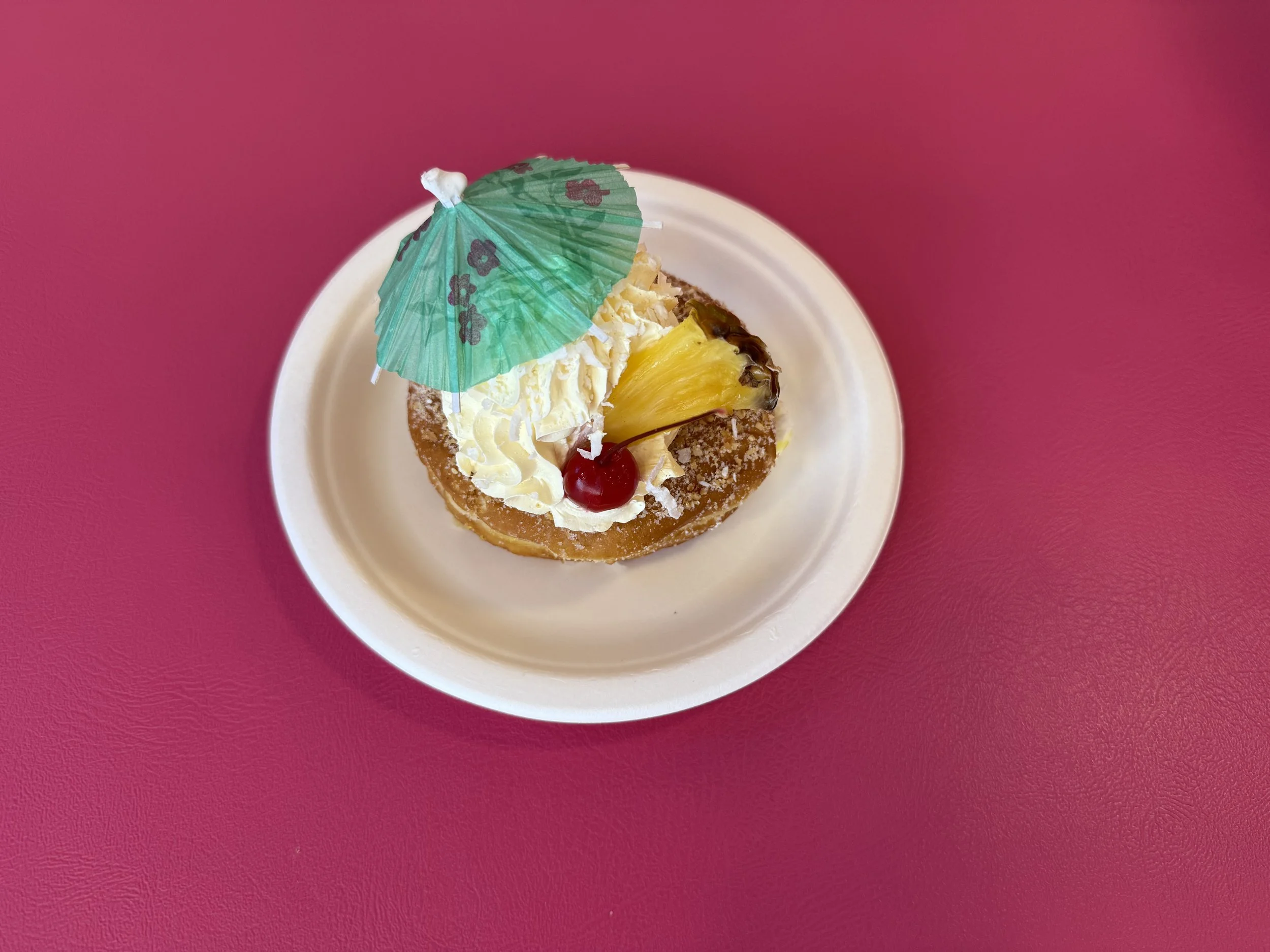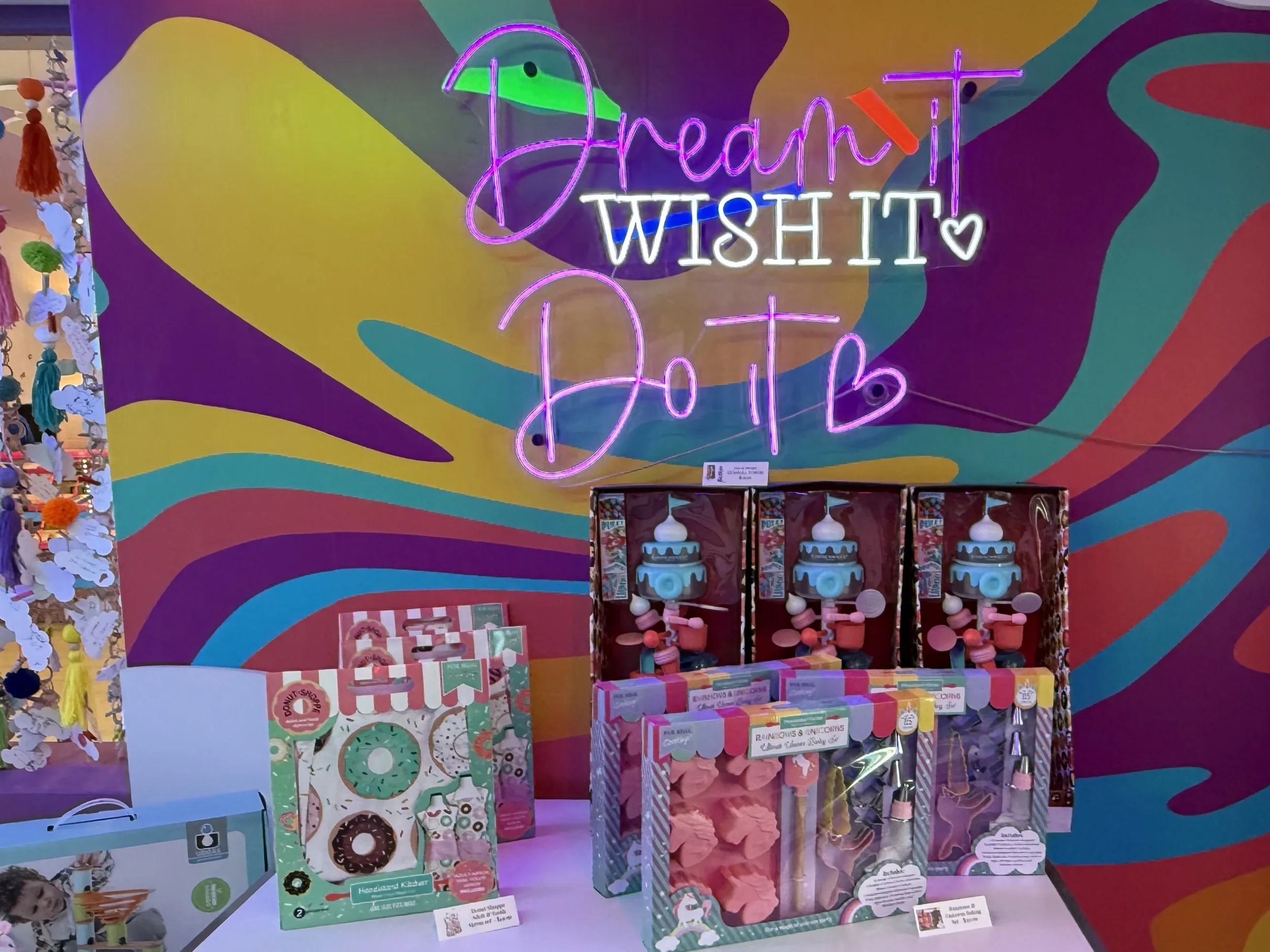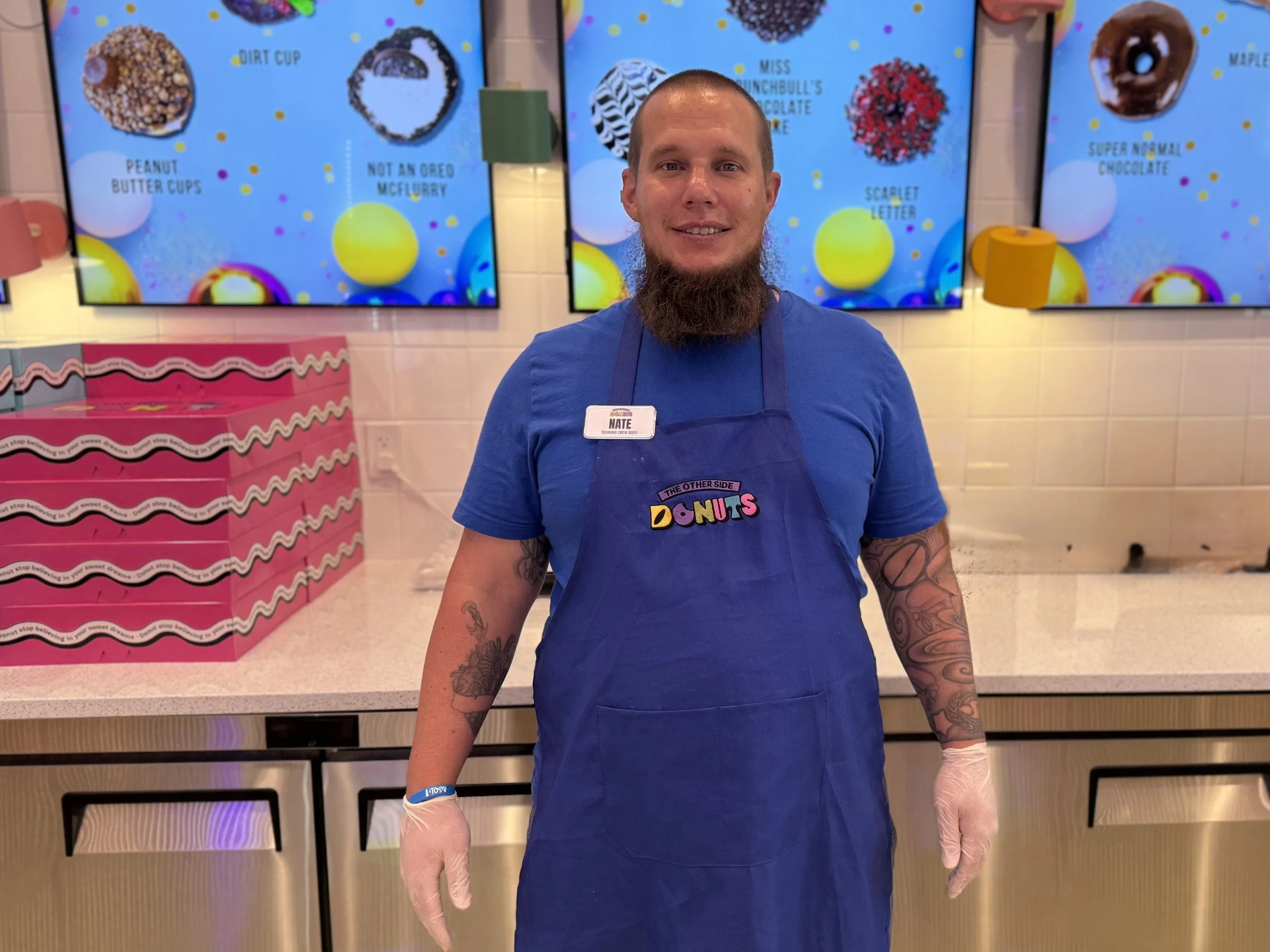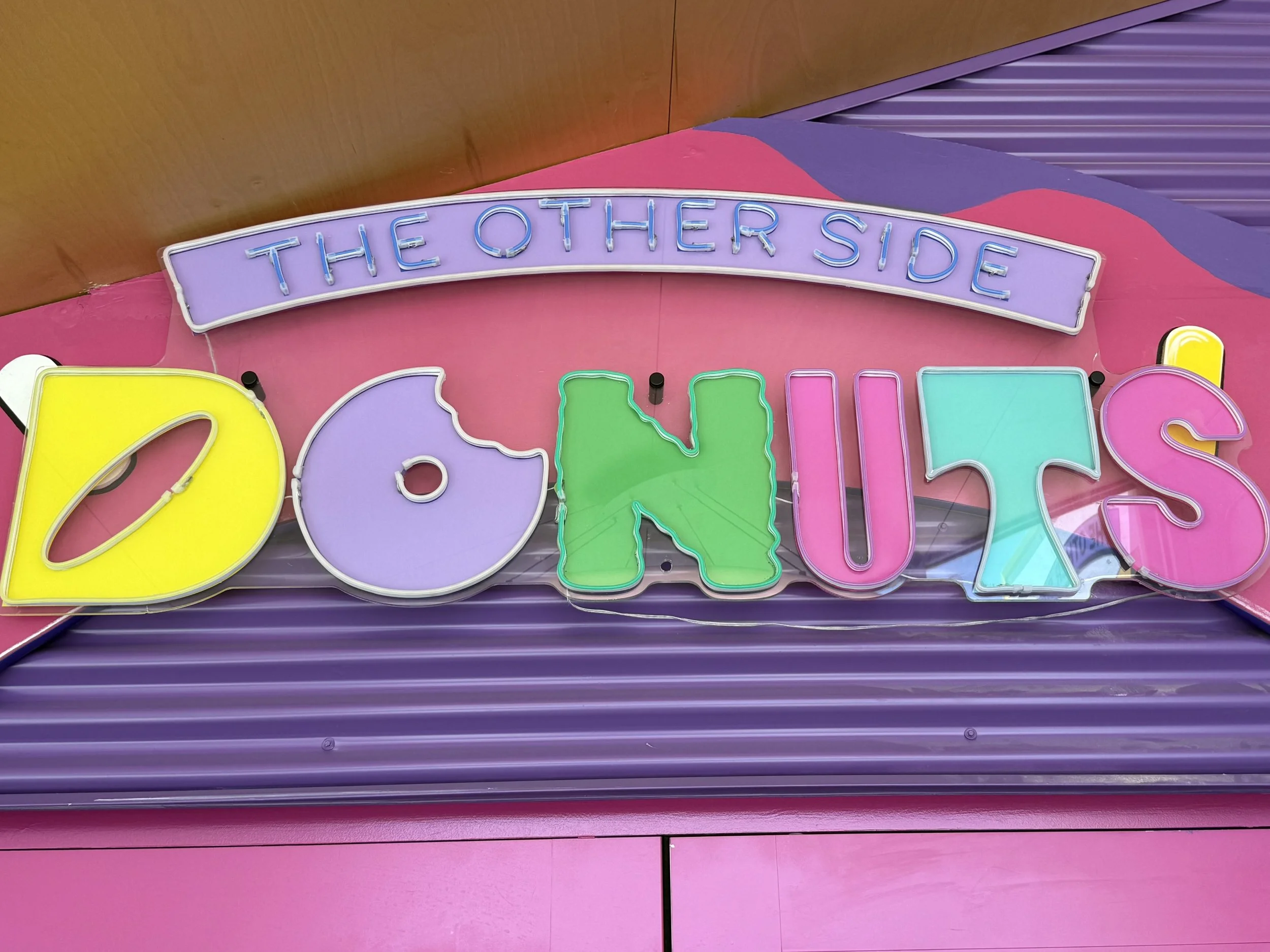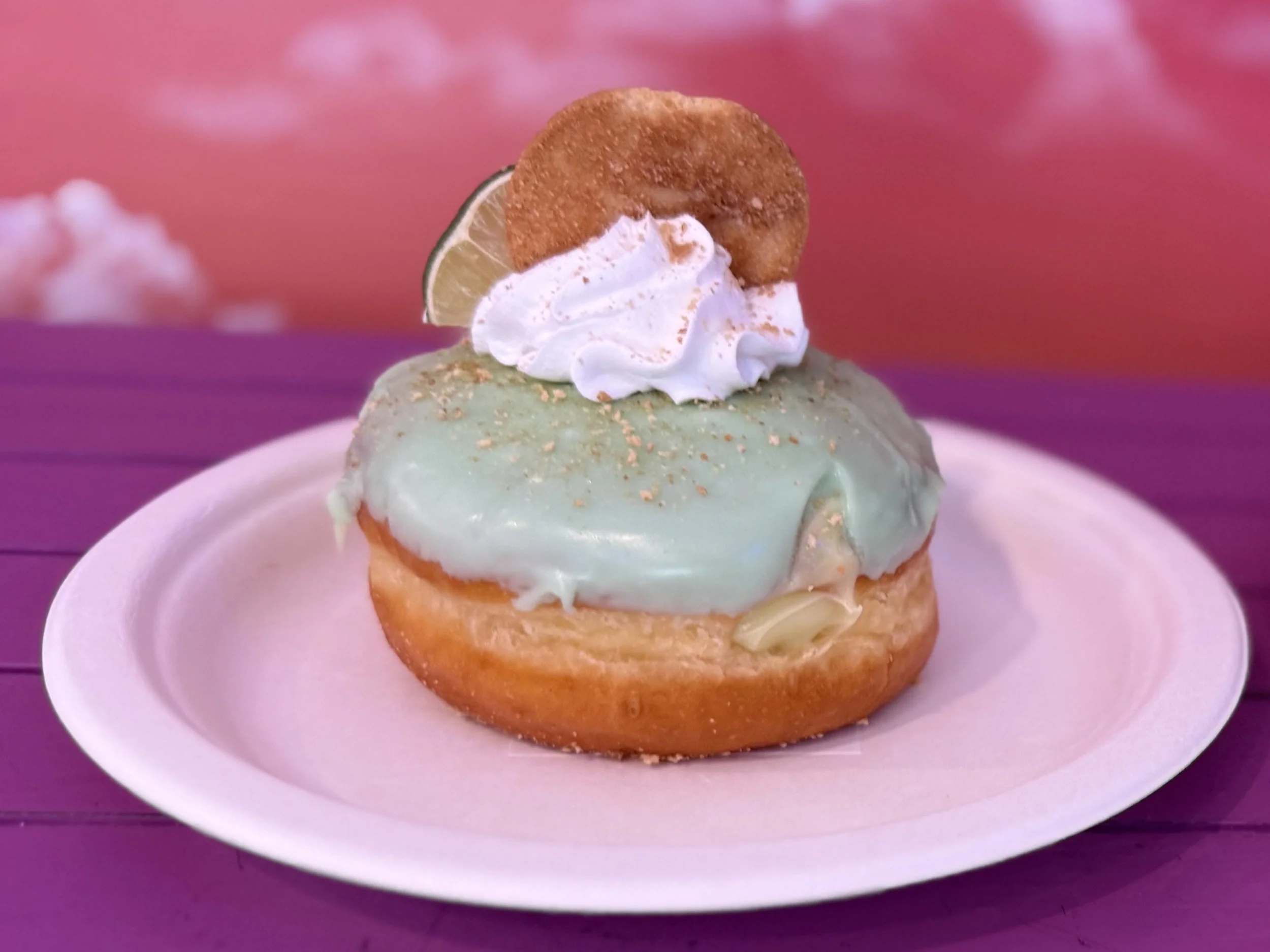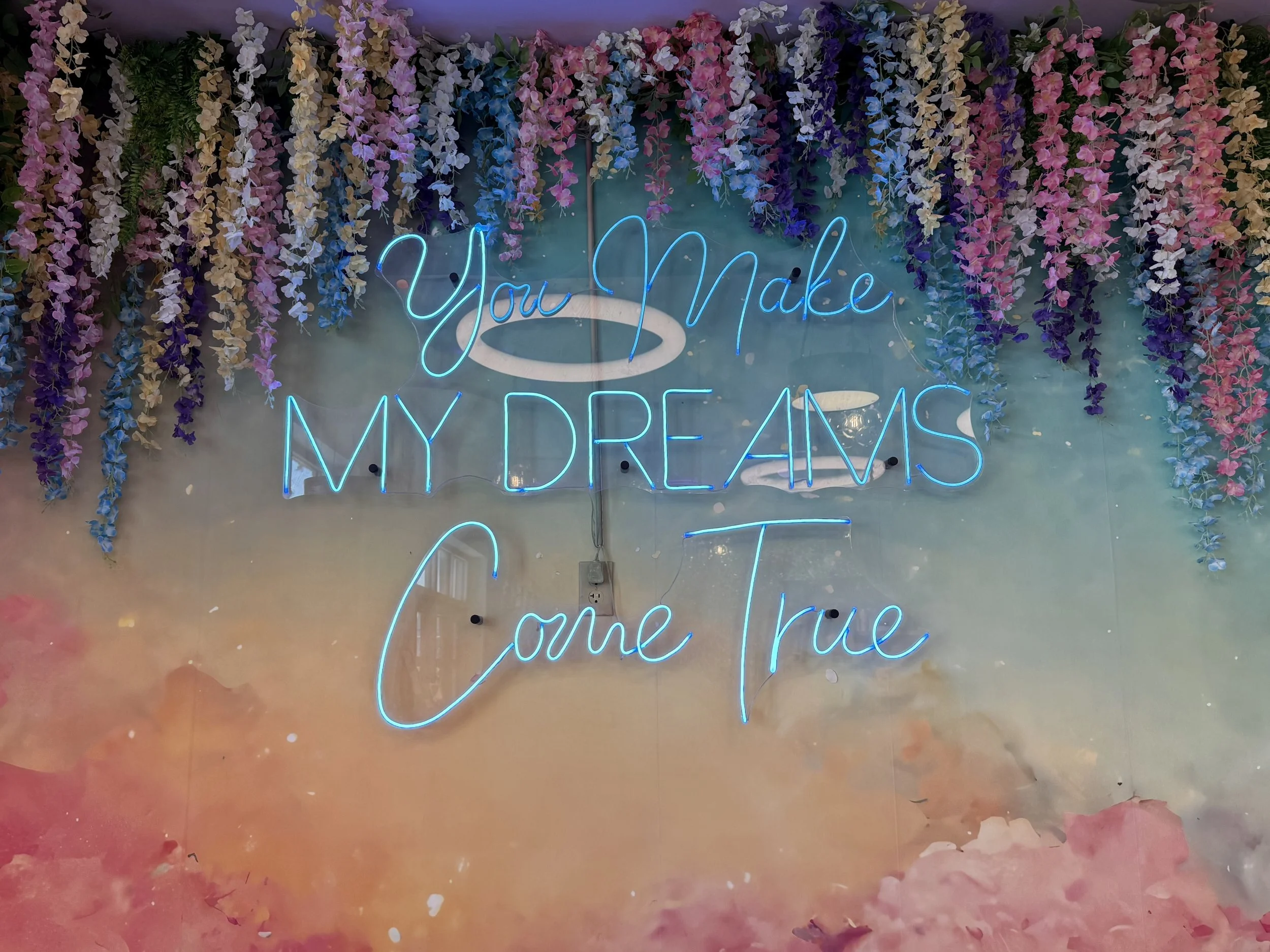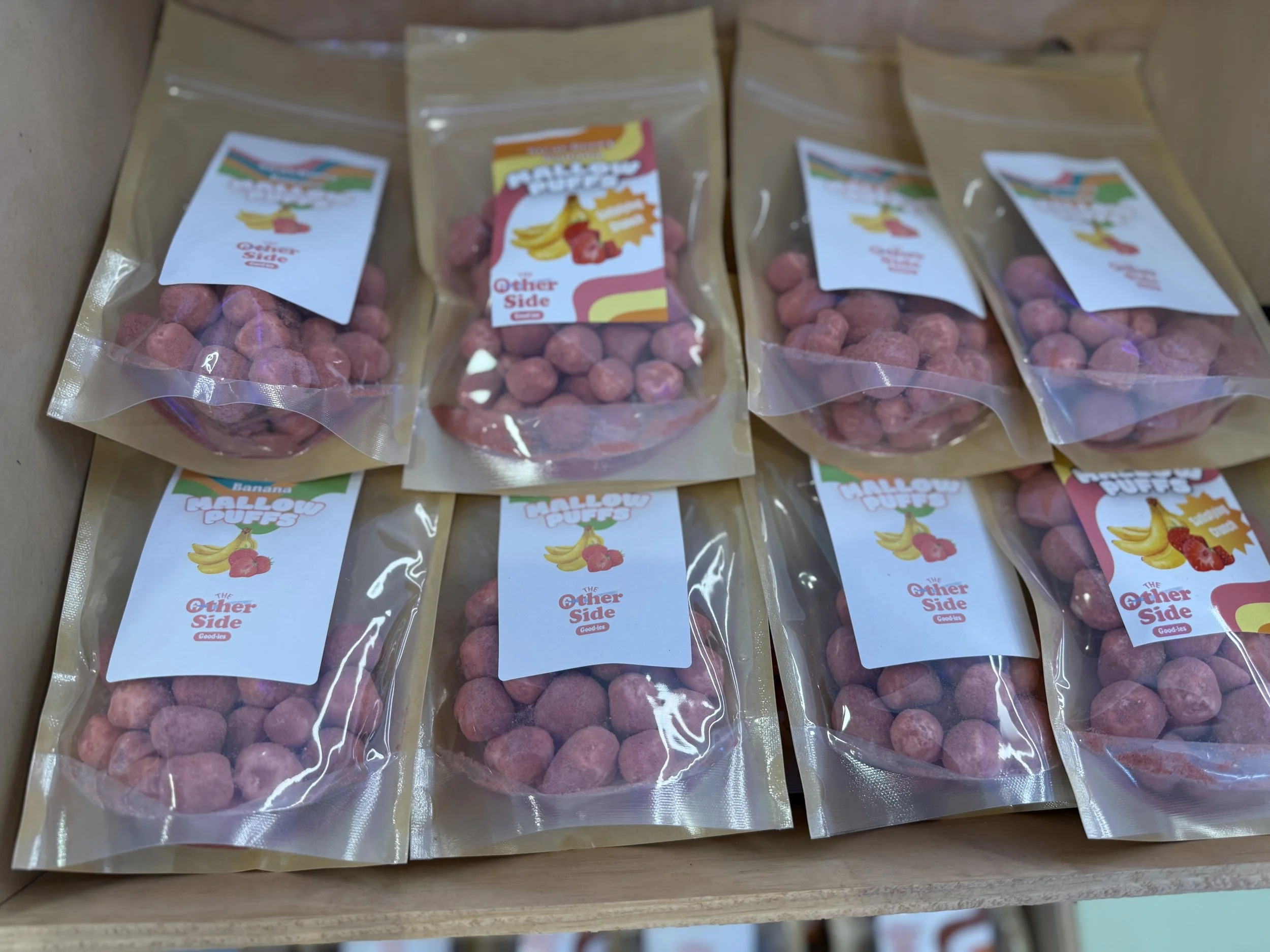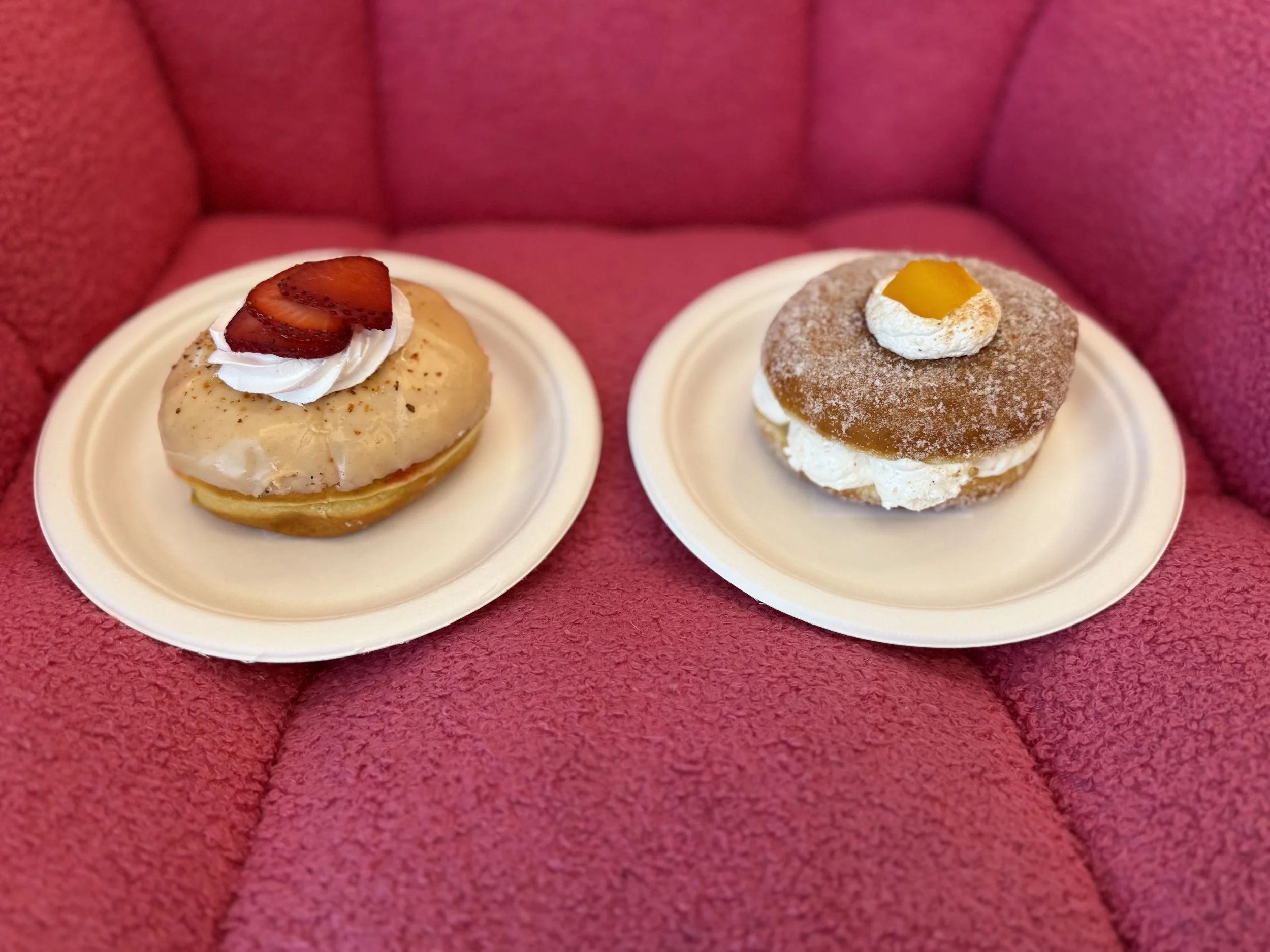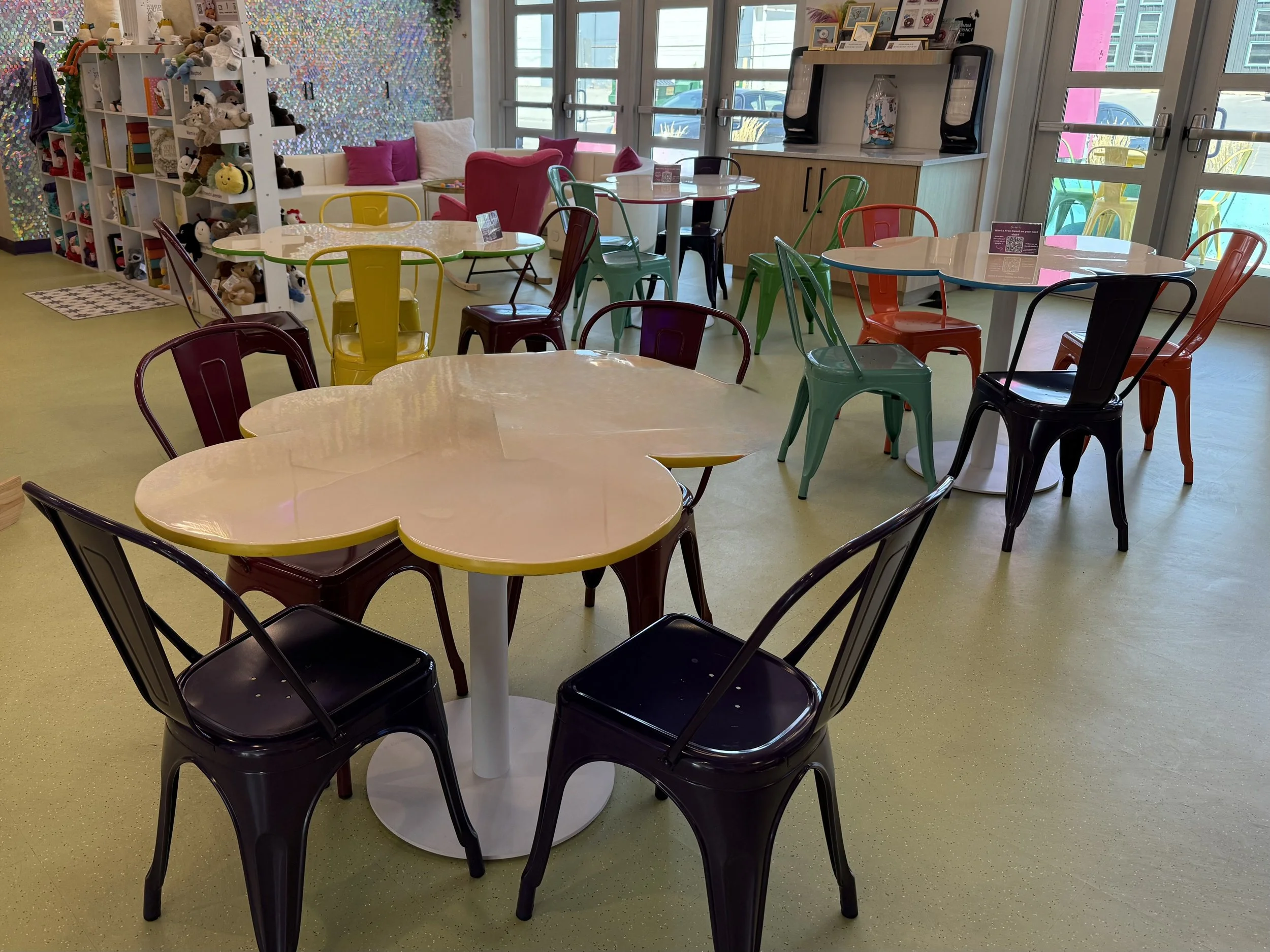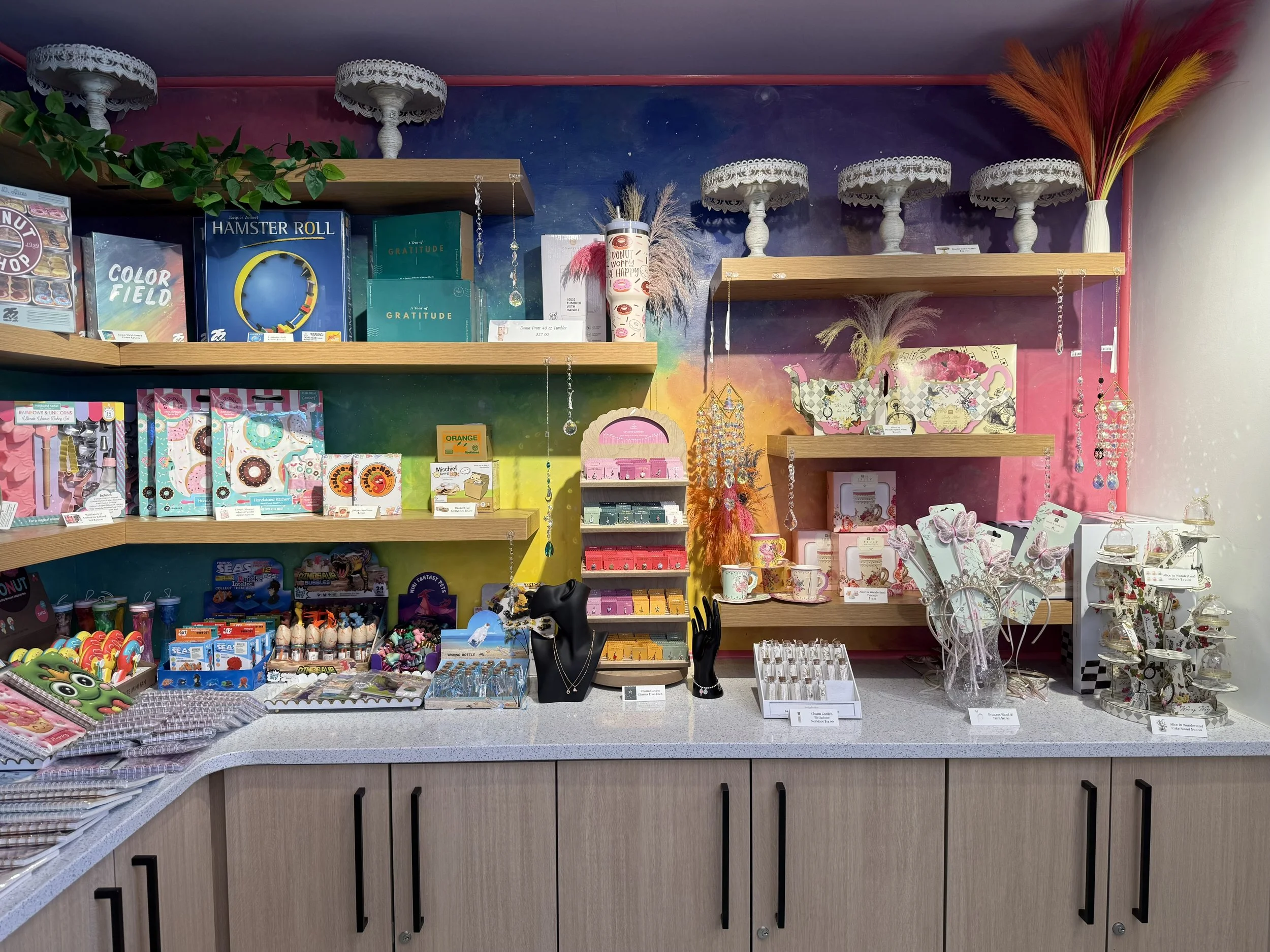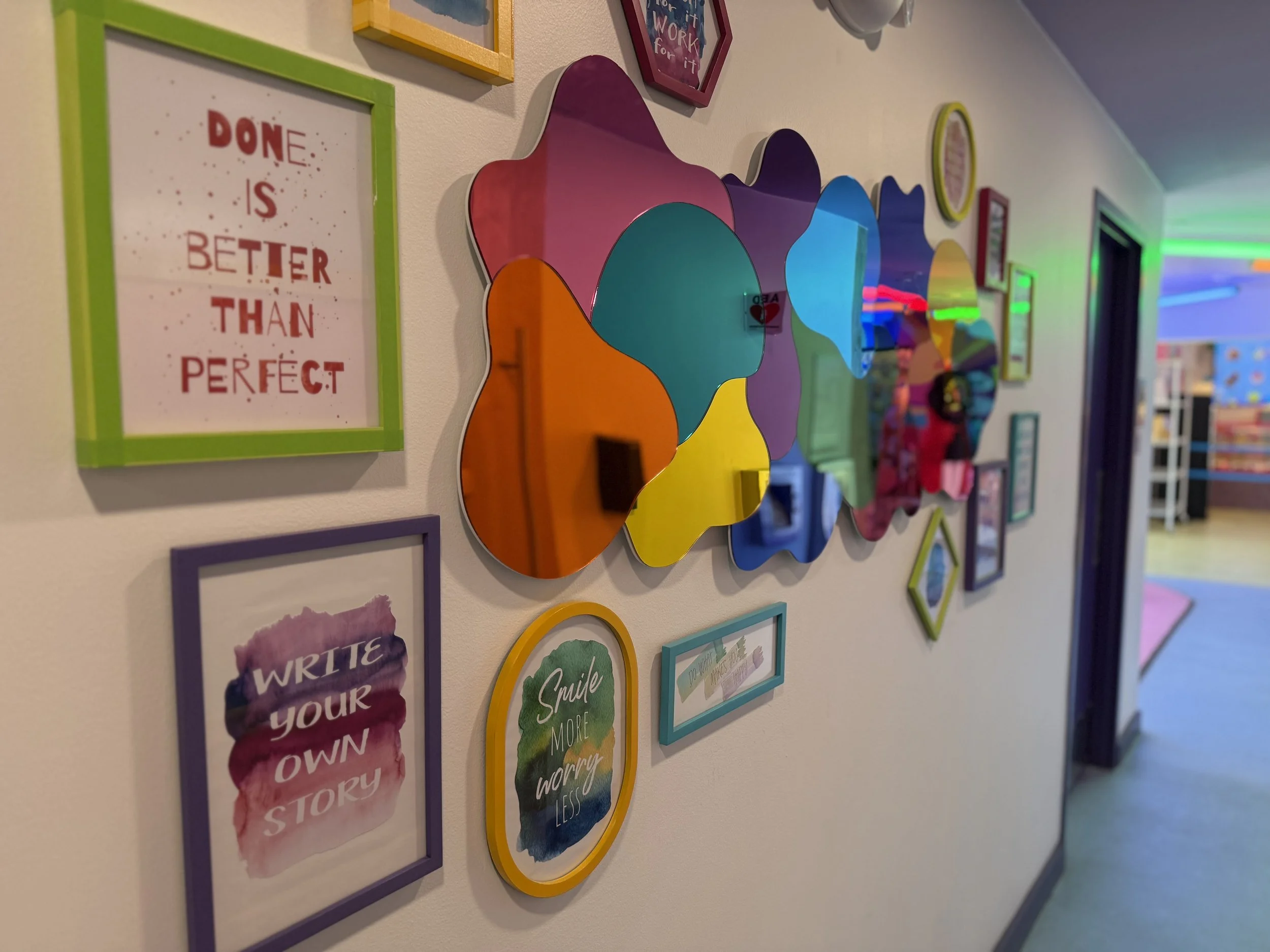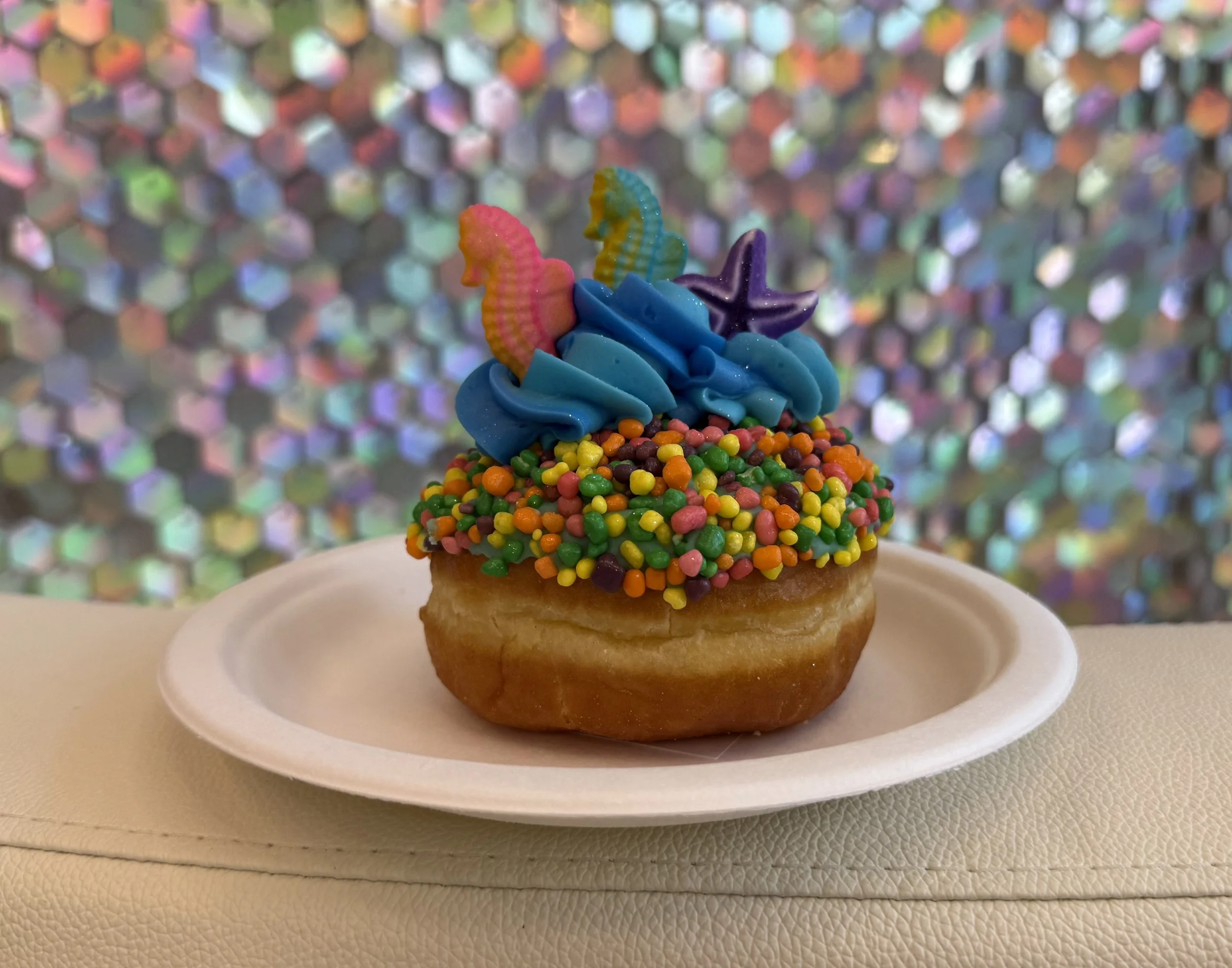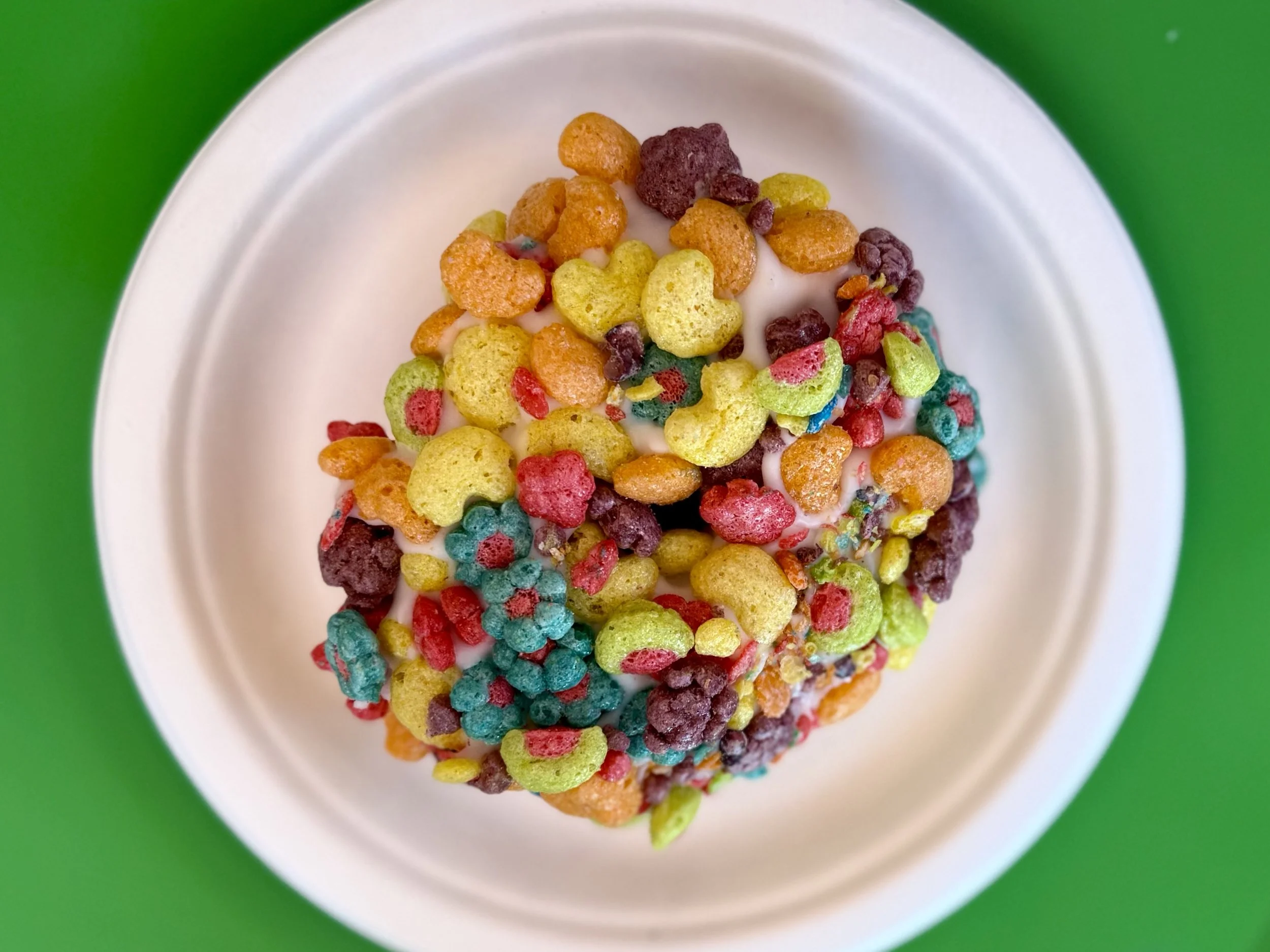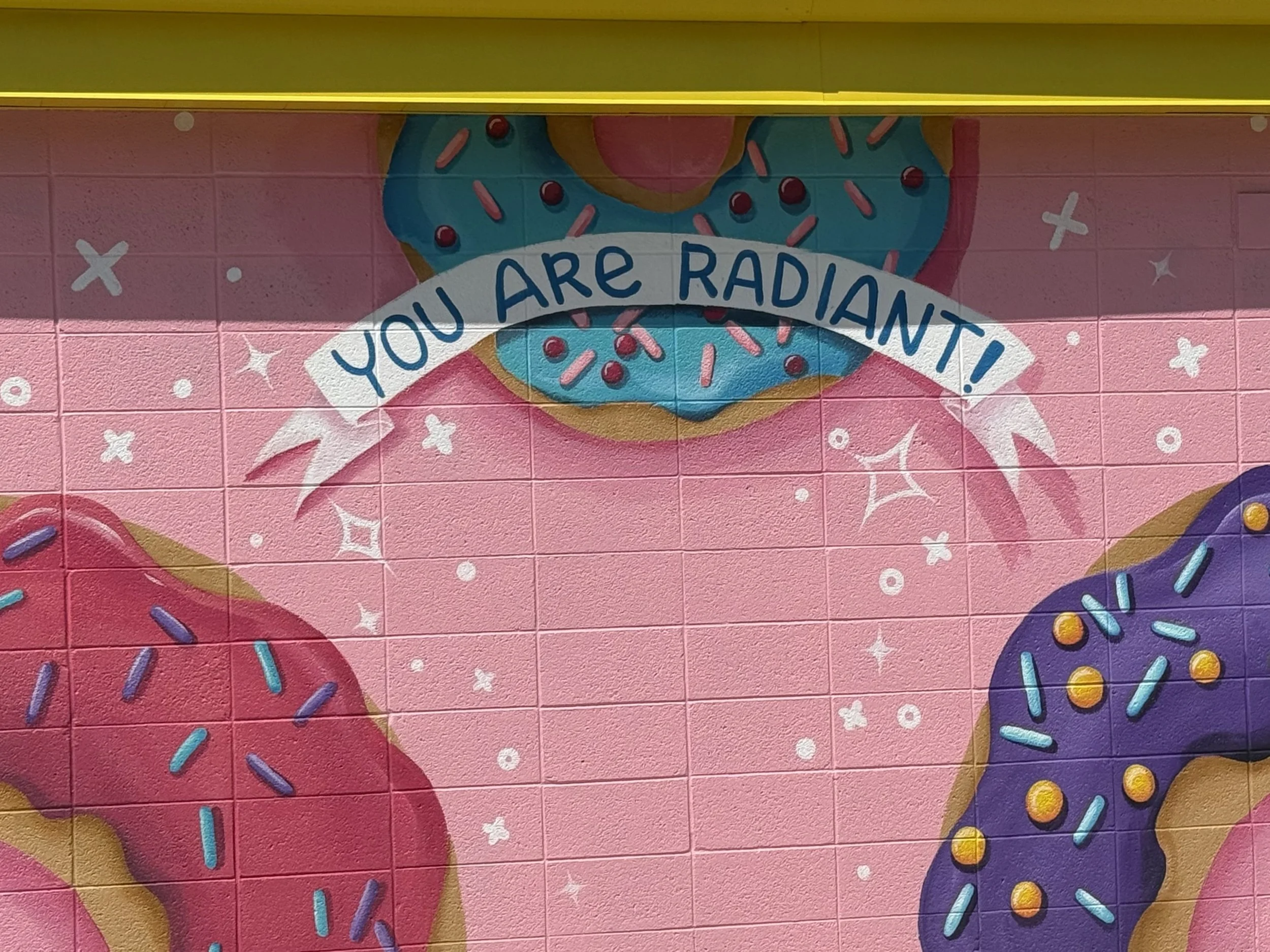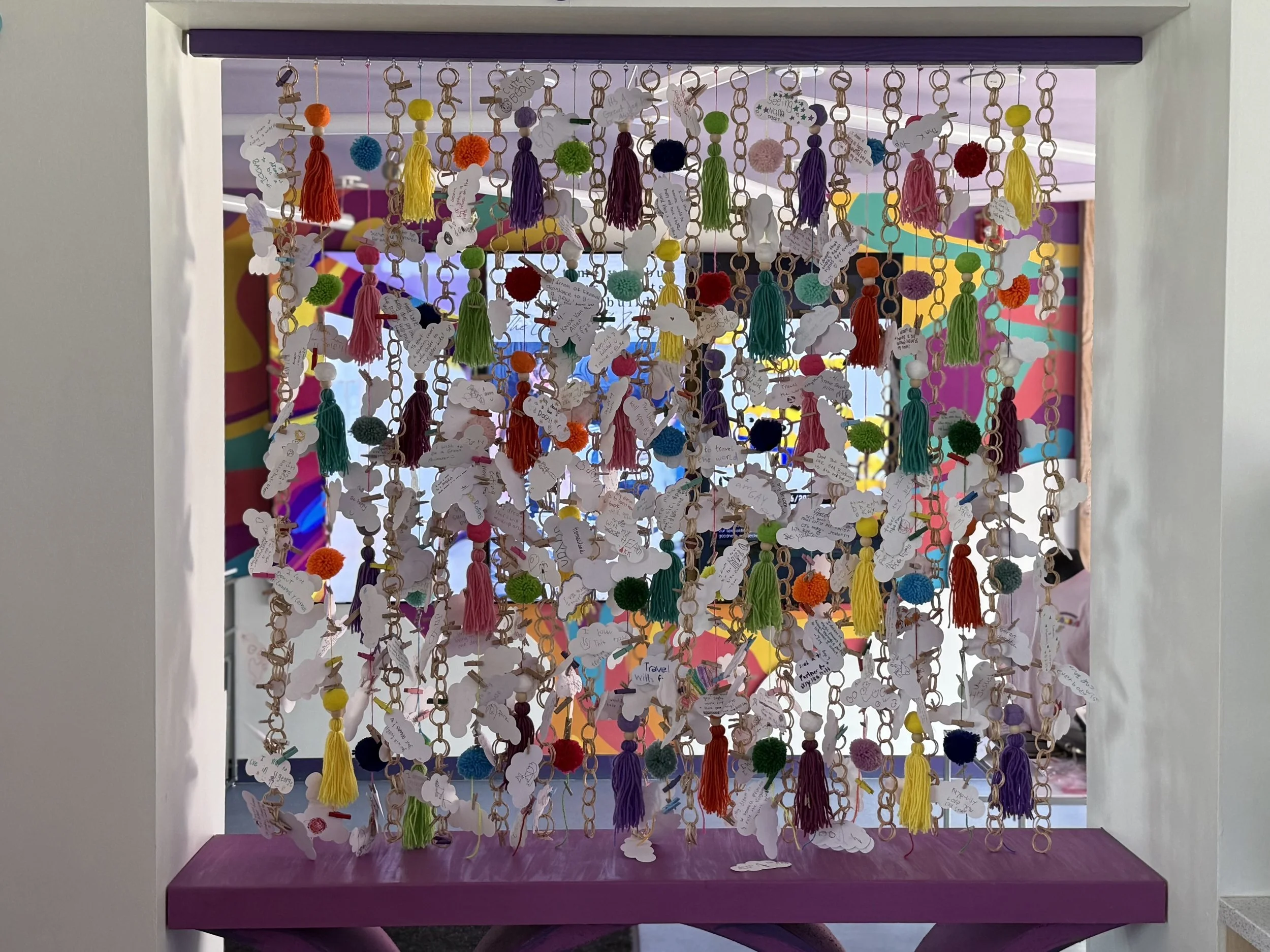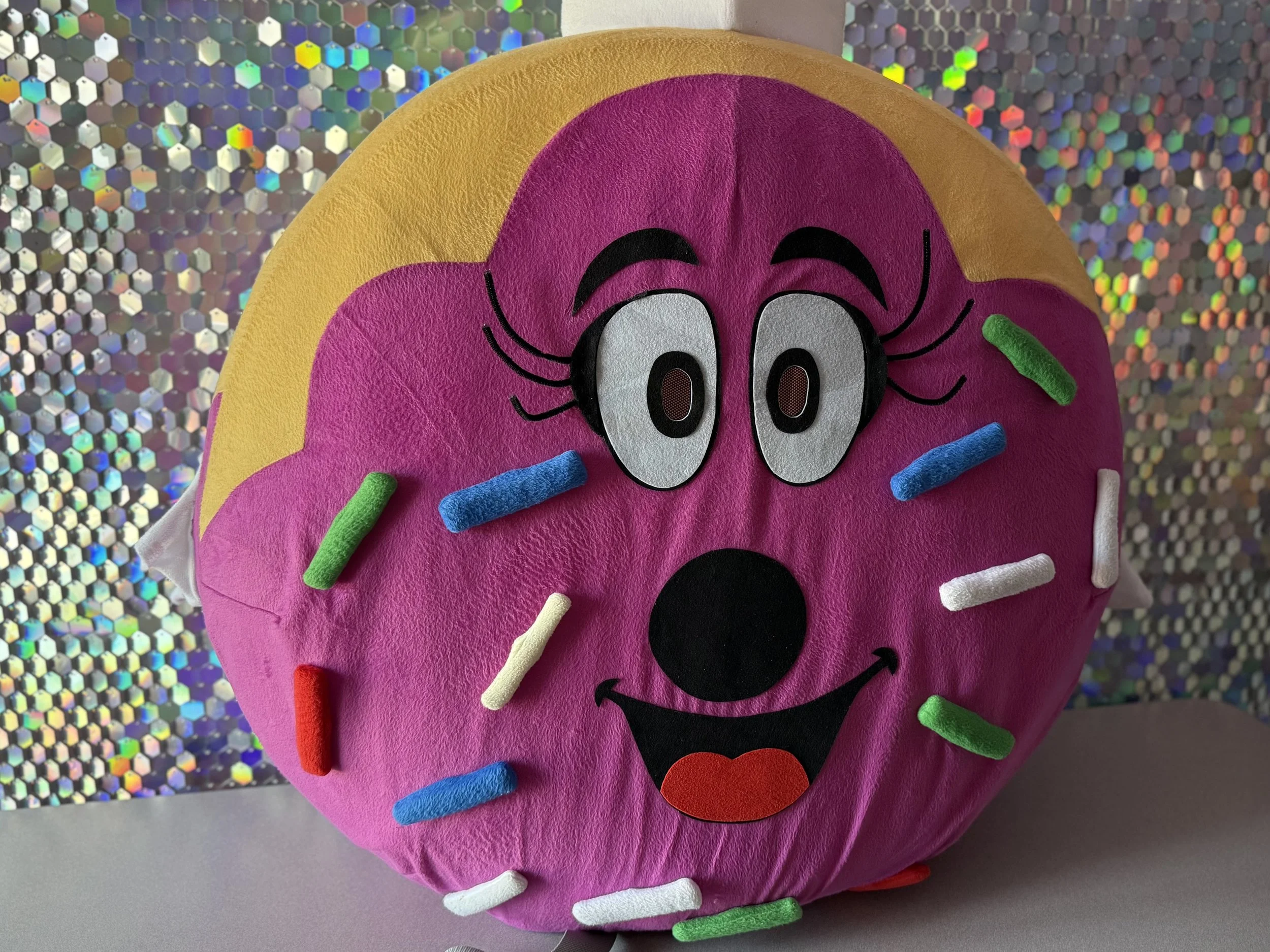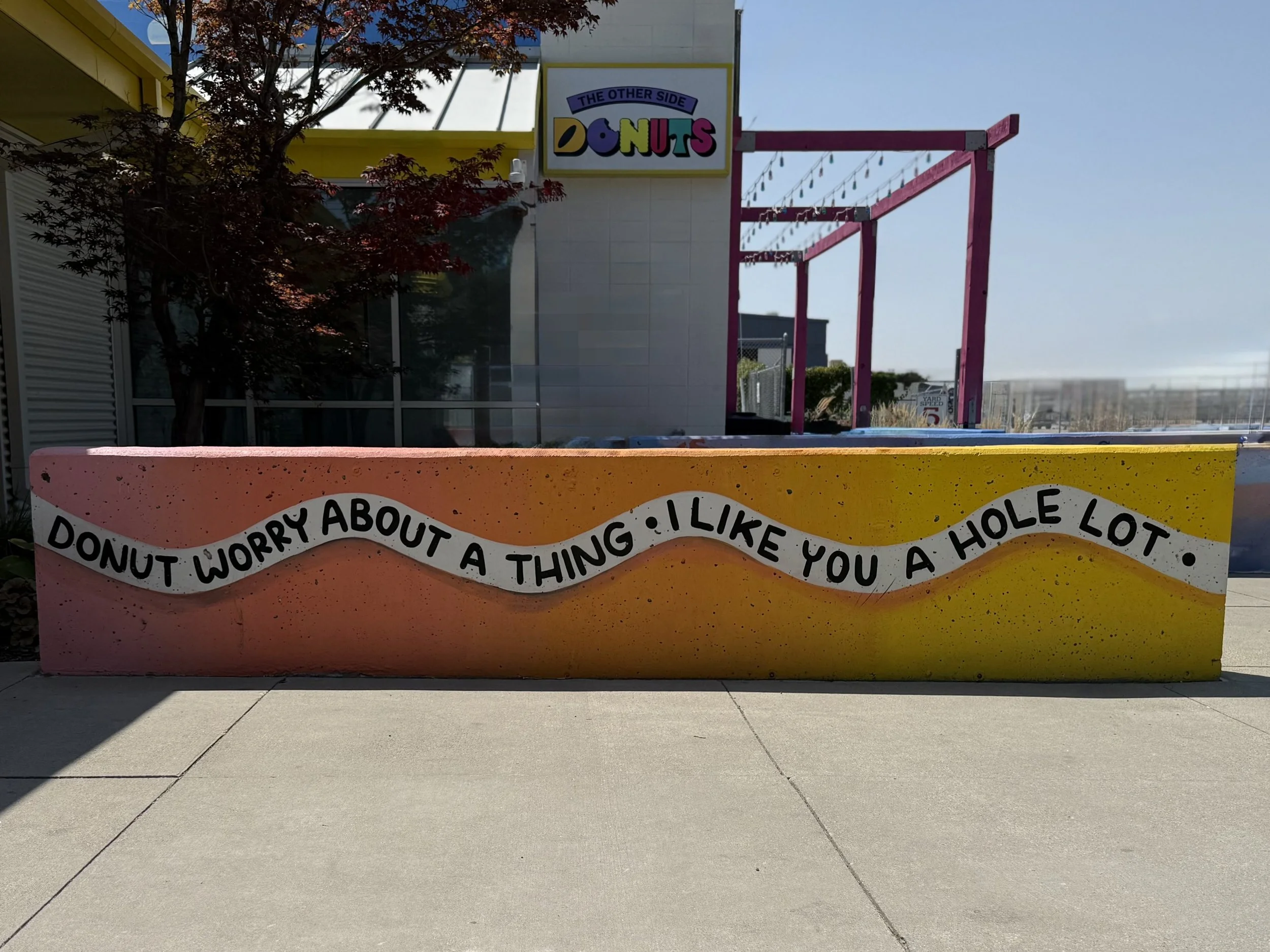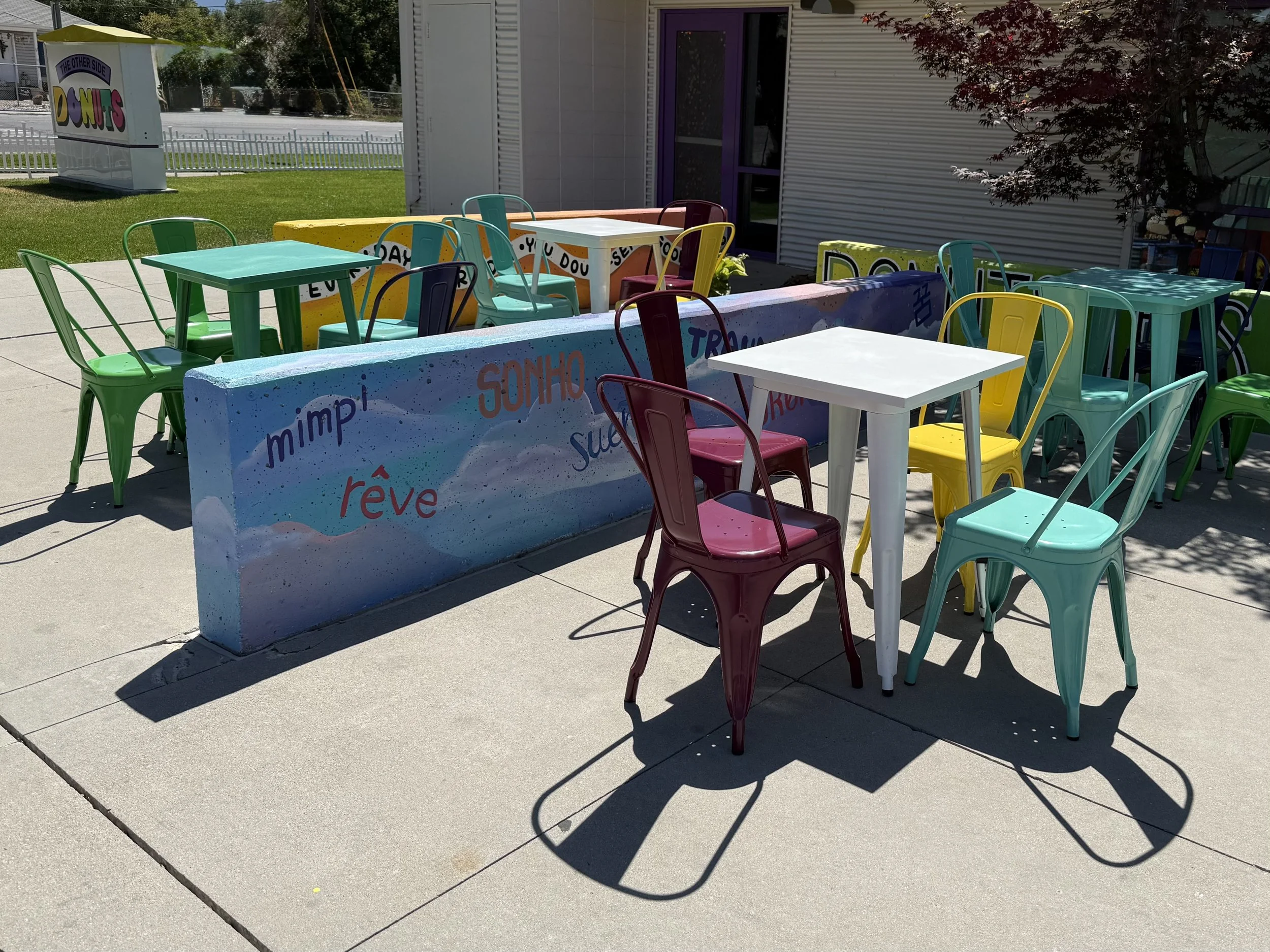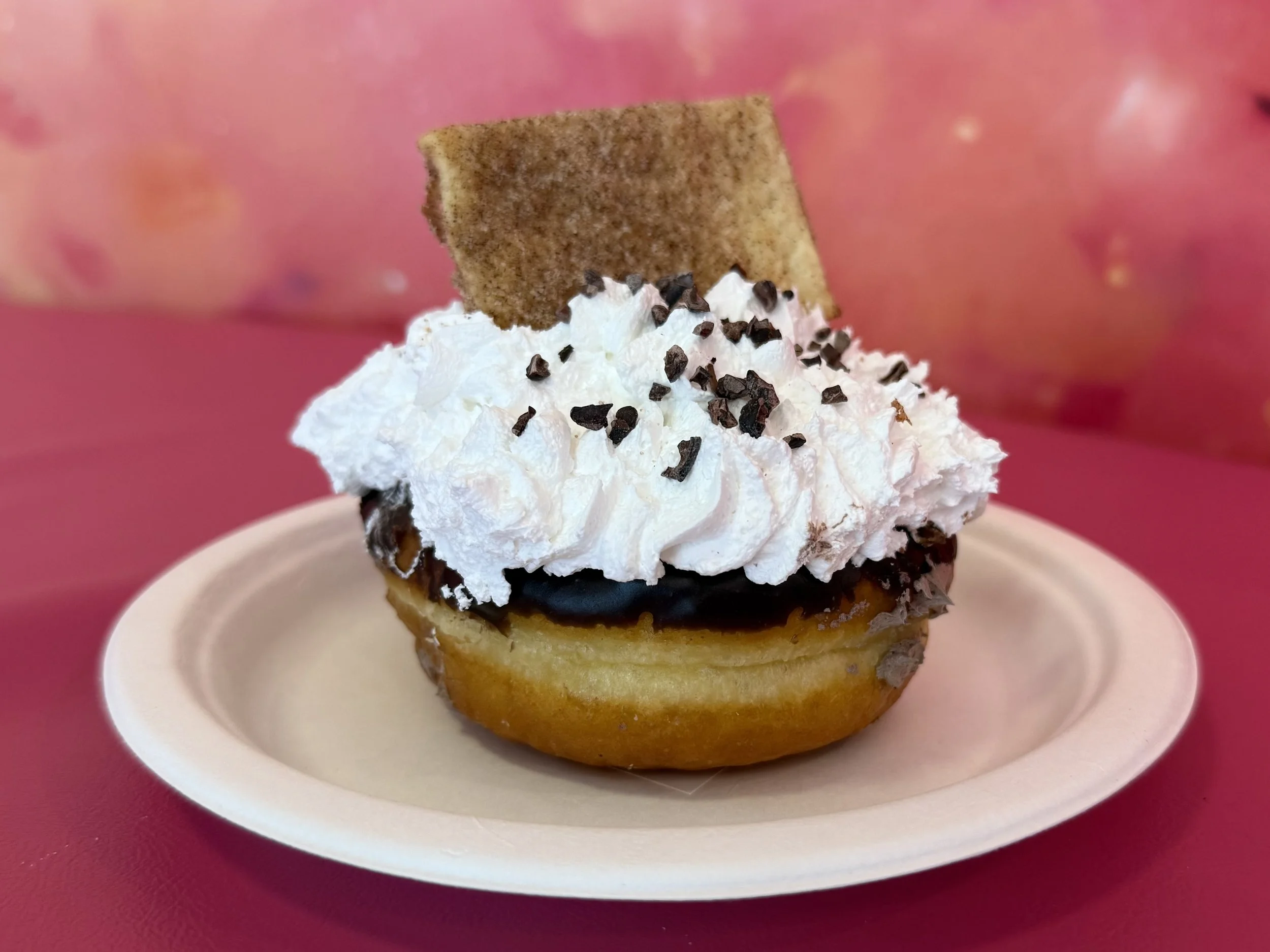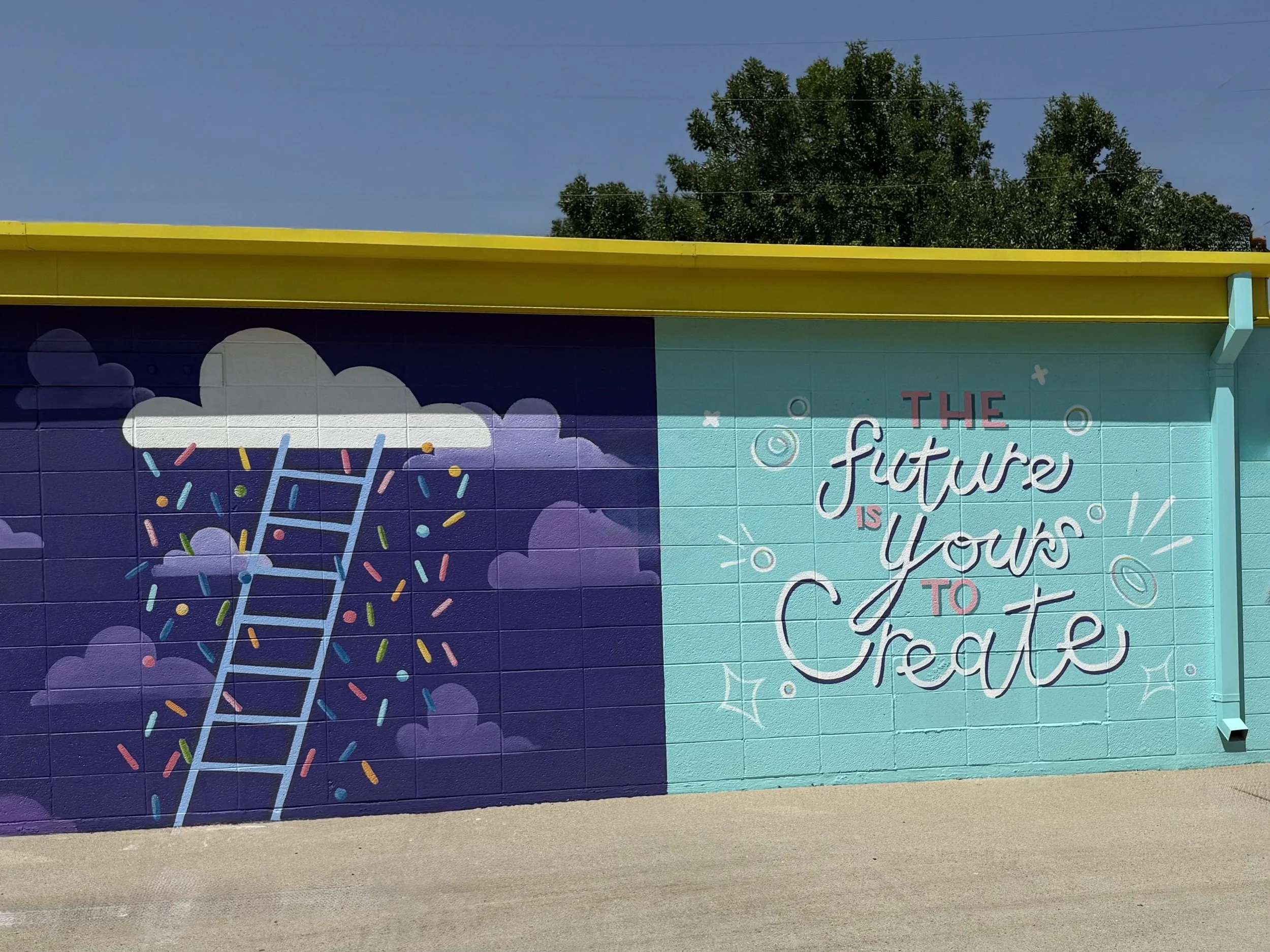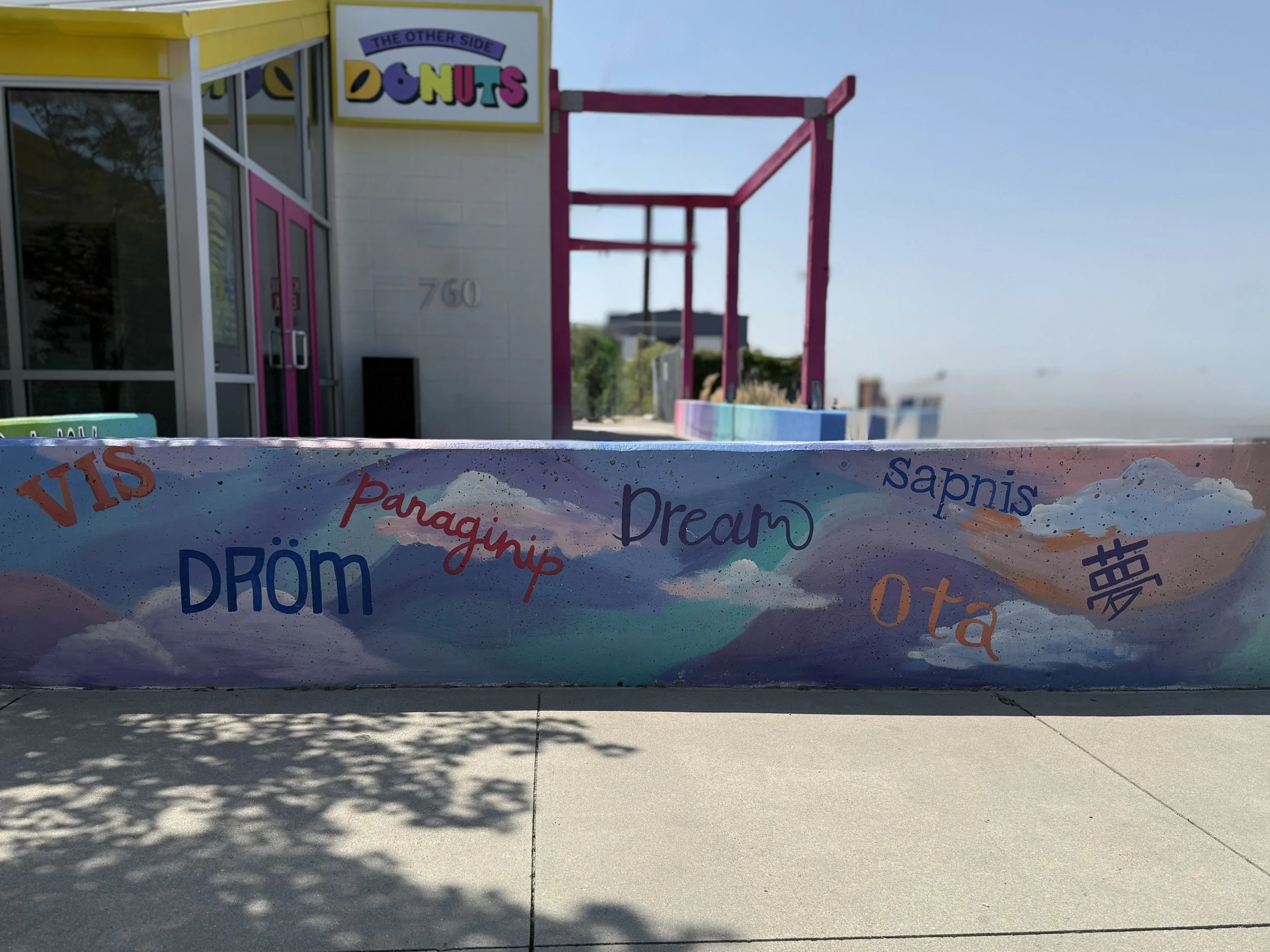The Other Side Donuts
Address: 760 South Redwood Road
Telephone: 385-226-5748
Website: theothersidedonuts.com
District: Glendale
“I have spent most of my life in and out of jail, and now I get to run a donut shop. I wake up and get to make people happy. I never thought that would be my life.” Nicholas Smith, General Manager of The Other Side Donuts, was born in San Diego, California, but moved to Vernal, Utah, before his second birthday. The second youngest of six boys, Nicholas grew up in a deeply troubled home. His father, a towering Polynesian man from Fiji, was abusive toward Nicholas’s mother. Nicholas still remembers hiding behind couches, calling 911, and watching the chaos unfold around him.
When Nicholas was eight, he stood outside the police station with his mother and waved goodbye to his father as he was deported for domestic violence aggravated by drug use. “He never hurt us boys,” Nicholas said. “He was always gentle with us. I have memories of him being protective. But all of it went to my mom.”
After Nicholas’s father left, the family splintered. Some of his brothers went to live with their Aunt Cherie; Nicholas stayed with his mother. She continued using drugs and entered a relationship with a man who became his stepfather. “That was the height of her addiction and kind of the most traumatic part of my life. I was only ten, but that moment in time defined my entire life.”
By the time he turned thirteen, Nicholas’s house became the local “trap house.” People came in and out to use or buy drugs. In a desperate attempt to connect with his mother, he started using meth with her. “All I wanted was her attention,” he said.
By then, the violence in the house was overwhelming. Nicholas was kicked out at least twice a week. At the start of the school year, he finally begged his mom to leave and go live with their aunt. She refused. So, he packed his things and left. The next day, the police raided their home, and his mother was arrested and sent to prison.
That same year, Nicholas caught his first felony. “I started breaking into cars, stealing change. That put me in the system.” From there, it became a cycle: probation, relapse, going on the run, crashing on couches, selling, and using drugs. “That became my identity.”
At eighteen, Nicolas went to jail for the first time. Around that time, he also had his first child, Nicholas Jr. Over the next ten years, he had three more children. “Between eighteen and twenty-eight, I continually went to jail. The longest I stayed out was six months. My average time sober? Maybe two years, once, when I did drug court.”
Nicholas’s Aunt Cherie, who had taken in five of the boys, was the one steady light in his childhood. “She’s the only reason we had birthdays, any structure at all. She couldn’t have kids of her own, and she just took us all on. Sacrificed everything.” But when Nicholas, now a teenager with no sense of rules, accidentally lit her house on fire by flicking a cigarette into the weeds, she exploded in anger. He bolted, going on the run again. “She was just trying to give me structure. I didn’t know what structure was.”
As the years passed, Nicholas’s brothers took different paths. Some followed the same dark trajectory. Others, like Wes and Dee, went into the military, college, and built successful lives. “I didn’t know how to have healthy relationships,” Nicholas said. “I didn’t even have enough work experience to know how to manage life emotionally.” Eventually, he landed in prison on the same charges that had once sent his mother away. “I had treated my kids essentially in the same way. I wasn’t using with them, but they were pretty young. I had repeated the exact same pattern.”
While spending eighteen months locked up, Nicholas completed every program available, read books, went to church, connected with a bishop - and thought he was ready to leave. But six months after he was released, he caught another felony. “I had no idea how to deal with life on life’s terms.” That was when he heard about The Other Side Academy. A man in jail was badmouthing it, saying they made you work hard, that they yelled at you. “Everything he complained about made me want to go.” Nicholas begged for the phone number and borrowed money just to make the call.
On the other end was Dave Durocher. Dave asked Nicholas, “Do you love your kids?” Nicholas said yes. Then Dave said something Nicholas never forgot: “This is how you treat them when you say you love them? I can’t imagine how you’d treat them if you hated them.” He told Nicholas that unless he was ready to truly change, the best thing he could do was stay away from his children. “I was bawling. That was truth. And that’s what love is. Truth.” He was accepted to The Other Side Academy. In 2017, after six months in jail, he was released and drove straight to Salt Lake City to the Academy with his kids and their mother. “I’ll never forget the tears on my son’s face as I left him. I will never do that to my kids again.” He did not see them for two years.
At the Academy, Nicholas began to rebuild. When he wanted to reconnect with his family after six months, Dave told him: “You’re not ready.” And they were right. Had he seen his kids then, he admitted, he would have left the Academy. Thankfully, Nicholas also had his mother, who had now turned her life around and was helping to raise his kids.
After completing the two-year program, Nicholas stayed for a third. “Why keep gambling with your relationship with your kids?” his mentors asked. “What’s pulling you away?” That final year was the hardest, but it was the year that made everything stick.
Once he graduated, Nicholas set his sights on IT. He got a job cleaning cars for $13.00 an hour at a Lexus dealership. Within three months, they offered him a sales position. But he stuck to his goal, saving enough money to attend a coding bootcamp. “It was the roughest thing I’ve ever done,” he said. “But I graduated with honors.”
Nicholas returned to the Academy to work in their IT department for three years. “I was doing something I loved, but I missed people.” That is when Preston Cochrane, CEO of The Other Side Village, asked if he would consider running the donut shop. Preston had been instrumental in building the Village - a master-planned community for people experiencing chronic homelessness - anchored in accountability, beauty, and self-reliance. Nicholas had been spending his free time mentoring residents there, drawn to what he called “my people.” The idea of creating a social enterprise that could serve the community while providing meaningful work aligned perfectly with his passion and his journey. Nicholas hesitated, “I didn’t know anything about donuts. And I didn’t want to make donuts for the rest of my life.” But after talking to his mentors, he saw the opportunity for what it was: a chance to build a business, lead a team, and give back.
The Other Side Donuts is part of the social enterprise wing of The Other Side Village. Donuts are made downtown and distributed across Salt Lake City - to Hyatt, Marriott, Real Salt Lake soccer games, Utah Warriors rugby, food trucks, thrift stores, and even birthday parties via a donut wall that can display up to 300 confections. But the main storefront, tucked into a former church on Redwood Road, is something else entirely.
The shop is whimsical and vibrant, filled with color, dreams, and joy. Designed by people who had worked with Disney, it was meant to be magical. There is a dream wall where customers can write down their hopes. There are squishies for kids, birthday serenades, dress-up days, and donuts as playful as they are beautiful. Their creations are as fun and clever as their names, with colors that match the shop’s bright walls - Pina Colada, Flo Rida Key Lime Pie, Stay Peachy, Milk Cereal, Minion, and Under the Sea, to name just a few, each as delicious as they are eye-catching. “We wanted to show the community something different,” Nicholas said. “A place where you’d want to bring your kids, have a birthday party. We’re showing that people who have struggled can add value. That we’re not a burden. We’re a blessing.”
The shop is a beacon in a historically underserved neighborhood - a colorful counterpoint to the narrative that nothing good can come from the west side. It is also a place of redemption. Nearly everyone working there came through The Other Side Village. Nicholas leads them with the same philosophy that saved his life: each one, teach one. “I live by one rule now: just do the next right thing. When I don’t know what to do, I fall back on that. And things keep working out. I teach that to my team, to my kids, to myself. That’s how I’m still here.”

